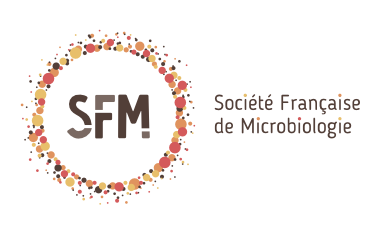Postdoctoral position
Design of microfluidic devices for the study of microbial interaction between bacteria from dairy and cider microbiota (MI2B)
Microorganisms of food origin are an important reservoir of ingredients and technological auxiliaries either as ferments or as sources of new compounds. Therefore, the effect of environmental factors on their growth and metabolism must be studied. These studies involve species or strain that either act on their own or interact collectively. In parallel, the last two decades have witnessed the successful development of micro- and milli-fluidic devices, also known as “lab-on-chips”. These small-scale systems allow targeted studies of (i) fermentation consortia and (ii) the underlying mechanisms of interactions between these microorganisms. The intersection microfluidics and food microbiology remains a methodological challenge.
The main objective of this research project (MI2B) is to implement innovative lab-on-chip devices that will enable a microscopic tracking of various microorganisms in controlled environments. In particular, the devices can serve gaining an in-depth understanding of the interactions between microorganisms from fermentation ecosystems. MI2B has the dual purpose of developing tools to better understand the microbial physiology of interacting microorganisms, and devising in-line monitoring devices for the dairy and cider sectors. Two models will be studied during this postdoctoral period: (i) the interactions Lactococcus sp-Staphyloccoccus sp (from dairy environments) and (ii) Lactobacillus sp-Oenococcus sp (from cider fermentations). A cell-labelling technique will be implemented to follow these interactions in real-time.
The post-doctoral position is opened from March 2022 and it runs until September 2023 (18 months in total). The candidate will be in charge of developing microfluidic systems and models of interactions between bacteria from fermented products. As part of the project, the characterization of the molecular mechanisms associated with the interactions of bacteria in the co-cultures will be of particular relevance. This project requires expertise in various scientific fields including microbiology, genetic engineering, microscopy, physics and fluid mechanics. To do so, the postdoctoral fellow will be assisted by experts in these scientific fields and he/she will have access to technological platforms to conduct his/her experiments. Mobility across laboratories is planned as part of the project to gain expertise on the transformation and labelling of lactic acid bacteria.
Keywords: Lactic acid bacteria, Microfluidic, Microscopy, Bacterial co-culture, Lactobacillus, Lactococcus, Oenococcus, Staphylococcus.
Skills & Qualification: Doctor in microbiology who has already worked on microbial interactions. This transdisciplinary project will call on skills in microscopy, microfluidics and microbiology. The post-doc should have at least two of these areas of expertise. The candidate must have skills or a real affinity for microscopy and microfluidics given the important part of these techniques in this research program.
Salary : 2860 euros
How to candidate: CV, motivation letter and contacts of two referents. Applications open February 10, 2022. Consideration of applications until March 11, 2022. Applications received after this date will be considered if the position is not filled.
Contact : Marina CRETENET, marina.cretenet@unicaen.fr, +33 (0)2 31 56 57 85 ;
UR 4651 Aliments, Bioproc d s, Toxicologie, Environnements (ABTE : www.abte.eu)
Equipe Matrices alimentaires et Microbiotes





